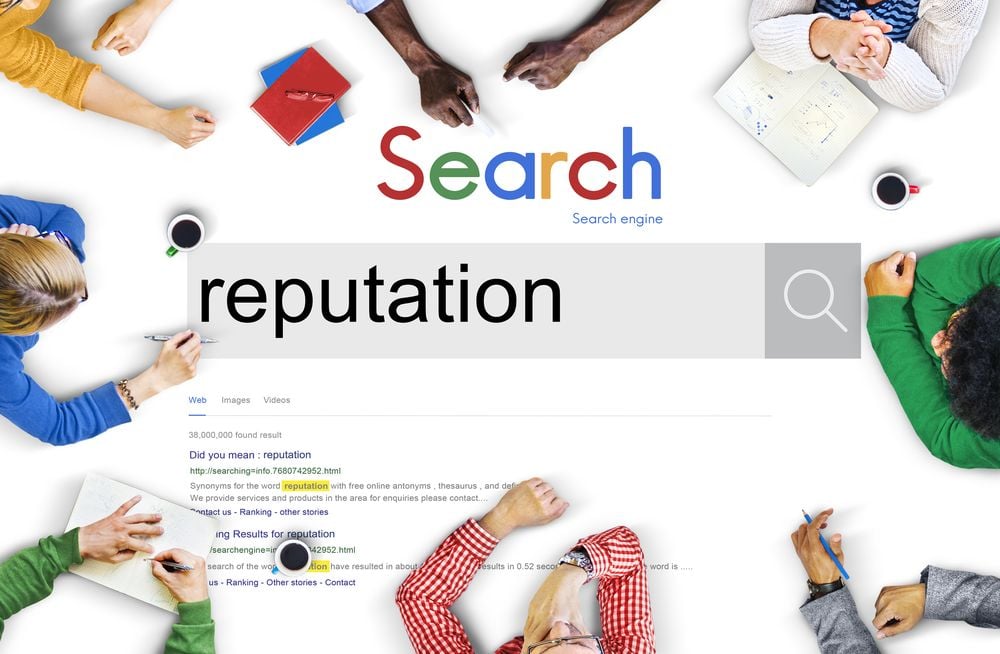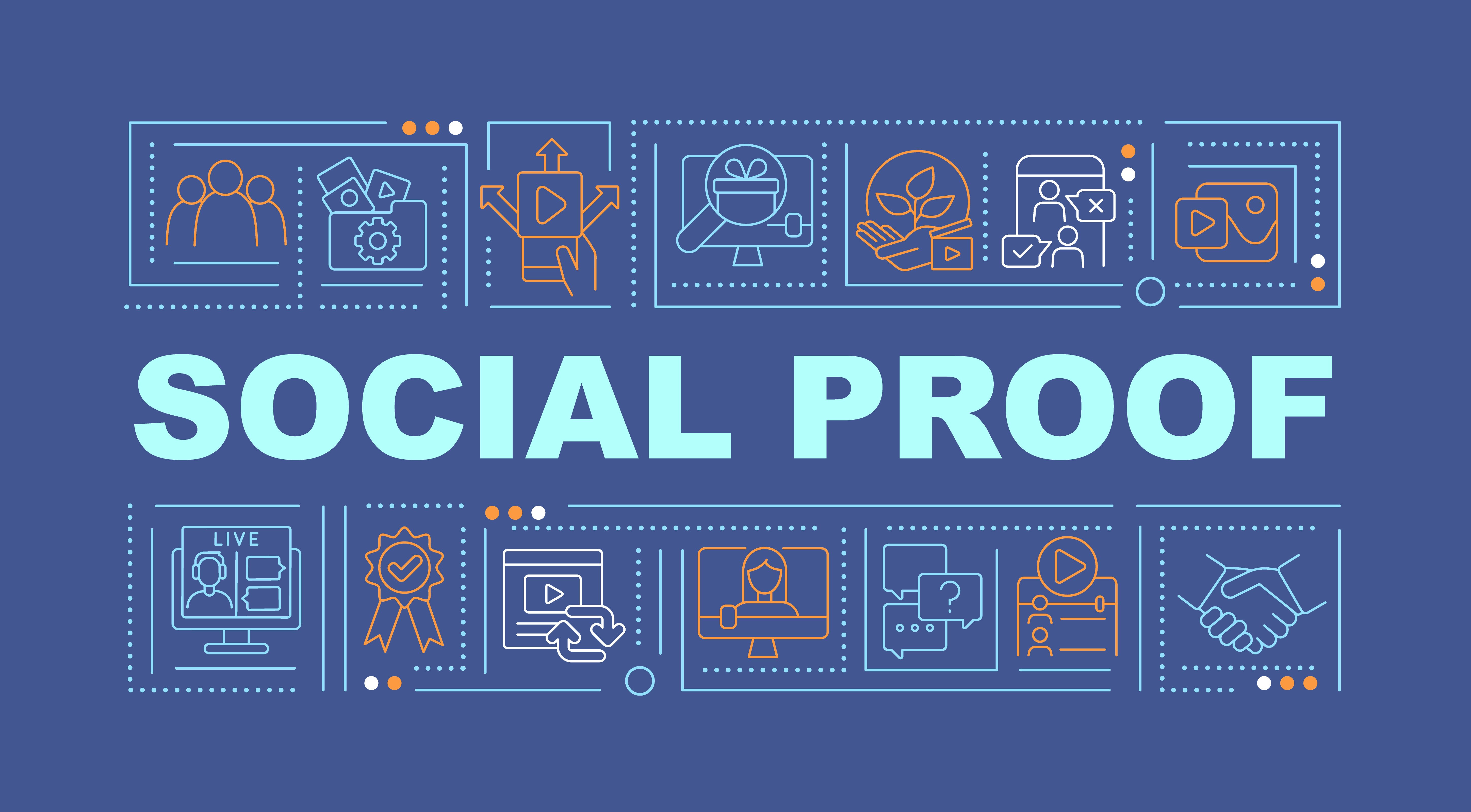What Is Reputation Marketing? The Complete and Transformative Guide
Discover what is reputation marketing, the benefits for your business, and exactly how to use it in your marketing materials to grow and get more reviews.

Why Companies Need to Focus on Reputation Marketing
Reputation marketing is the process of using your company’s reputation to market your business to new leads. Reputation marketing is about acquiring and amplifying positive brand content to use your reputation as a promotional asset in marketing campaigns.
It is an emerging field that combines elements of brand marketing and reputation management.
If done right, reputation marketing increases sales and improves your business metrics. It enhances your brand, decreases costs and boosts revenue.
By marketing your positive reputation, you establish trust with customers before they speak to a sales rep and ease potential customers' concerns by showing them trust signals. That’s powerful stuff!
In this guide, we’ll explain what is reputation marketing and why it matters. We’ll also provide some examples so you can create a reputation marketing strategy for your business.
What Is Reputation Marketing?
Reputation marketing is the strategy of using brand assets from your company’s reputation as advertising and promotional materials. Examples of assets for reputation marketing include customer reviews, testimonials, online ratings, community awards, social media mentions and more.
So reputation marketing is about using reviews and testimonials as part of your marketing. You’re literally marketing your reputation, whether by including positive reviews in your advertisements or sharing testimonials on social media.
Reputation marketing differs from brand marketing and reputation management because you’re using what others say about you to promote your company.
Brand marketing is about publicizing your company’s identity and values. Your brand is how you tell the world what your company stands for. Your reputation is what your customers think your company stands for and how good of a job they think you do living up to it.
Reputation management involves managing your reputation by decreasing negative reviews, responding to online feedback and resolving customer complaints online.
Reputation marketing is more active than reputation management. It’s about getting positive mentions through reviews & social media and using those mentions in your marketing.
Reputation Marketing vs. Reputation Management
We're seeing a shift in focus from reputation management to reputation marketing over the past few years. This is because reputation marketing has a higher impact for businesses.
Reputation management for SEO, social media, and any other marketing channel that you're present on influences customer perception by avoiding and responding to negative reviews.
Dealing with negative reviews is still important. To effectively manage your reputation, it’s helpful to respond to dissatisfied customers promptly and tactfully. If you ever find yourself in such a position, refer to these handy negative review response examples.
But reputation marketing is more proactive. It involves acquiring more positive mentions online and marketing those mentions across your website, on social media, on review platforms and more.
The two main aspects that define reputation marketing are:
- Improve your reputation: Using reputation marketing first means improving your reputation. Get more positive reviews and ask customers to recommend you. NiceJob’s reputation marketing software helps automatically collect customer reviews.
- Market your reputation: This is the big one. With lots of customer reviews, testimonials and positive mentions on social media—you can use those assets in your own marketing.
This is why reputation marketing can have a strong impact on your business. You’re not playing "damage control" when your business gets a negative review. Instead, you’re using your reputation as a positive asset to drive sales.
Why Reputation Marketing Matters
Reputation marketing is important because your online reputation is the most powerful marketing tool.
Consider these statistics about customer reviews and company reputation:
And here are a few more eye-opening reputation marketing statistics:
- On average, customers read ten reviews before buying and think that reviews are 12x more credible than sales copy.
- Users are 74% more likely to contact a company with customer reviews on their website than a company that doesn’t display reviews.
- One study found that advertisements with reviews and user-generated content perform better: click-through rate (CTR) increased by 300% and cost-per-click (CPC) & cost-per-acquisition (CPA) both decreased by 50%.
Reviews, testimonials and user-generated content increase website traffic, contribute to search-engine optimization (SEO) and generate leads and sales. Plus, using reviews in ads and on social media improves your metrics and strengthens your bottom line.
For these reasons, reputation marketing is essential if you want your business to succeed.
In today’s world, it’s no longer enough to manage your company reputation by trying to get rid of bad reviews and minimizing the public damage caused by negative customer feedback.
To get ahead, companies need to monitor their reputation, actively get referrals and promote customer reviews & recommendations in their marketing. This is what reputation marketing is.
Next, we’ll look at concrete examples of reputation marketing so you can get inspired and hit the ground running to promote your reputation.
Become the Top Business in Your Area
Learn the proven strategies of top-rated businesses who've skyrocketed their trust, credibility, and sales.
Get the Blueprint.png)
What Are Examples of Reputation Marketing?
There are lots of ways to show reviews on your website to promote your reputation.
But here are four proven places to promote your online reputation and how they each demonstrate the benefits of reputation marketing.
4 Places to Use Reputation Marketing
- Add customer reviews on your website
- Use reviews, ratings and testimonials in advertisements
- Promote your reviews on social media
- Claim and set up listings on review sites
1. Add Customer Reviews to Your Website
The first is to have a dedicated reviews page like this example from Vancouver, WA's Integrity Cleaning, where reviews from Google, Facebook, and more are automatically embedded on the website. It's a great way to showcase positive customer reviews on your website.
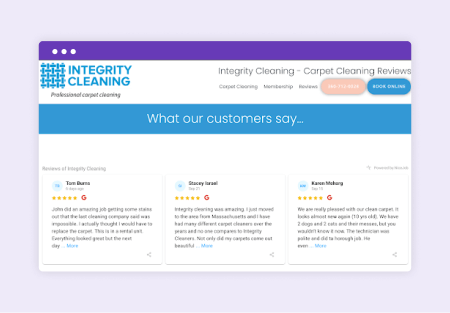
Another option is the promotion of real-time reviews in a discreet corner of your website to capture the attention of website visitors when they’re considering your company’s services. This subtle reminder of your company's reputation leaves a great impression on visitors.
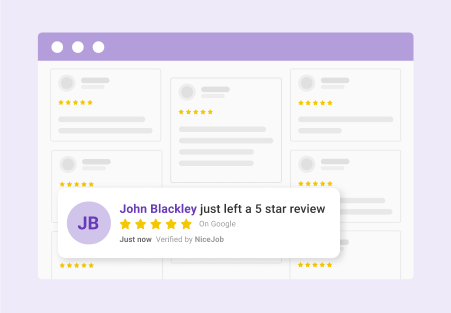
Displaying reviews in a dedicated section on your homepage is a surefire way to promote your positive reputation to website visitors.
One of our studies found that adding a review underneath a website’s hero section improved the conversion rate by 56.2%.

2. Use Reviews, Ratings and Testimonials in Advertisements
Whether you’re using Google Ads or promotions on Facebook or Instagram, leveraging your reputation in your ads helps to improve paid-marketing performance.
This is especially pertinent since Google retired manual review extensions from Google Ads, for instance. This means finding diverse ways to reference reviews and ratings to drive results is more important than ever.
Adding customer testimonials in sponsored Facebook posts like in these examples is engaging and effective. This type of reputation marketing on social media generates buzz about your company while providing convenient calls-to-action so leads can contact you or learn more.

These paid posts are excellent examples of reputation marketing using paid ads on Facebook because they show potential customers the success stories of others who have commissioned you. Now your leads are more likely to trust your business and will feel more comfortable hiring you.
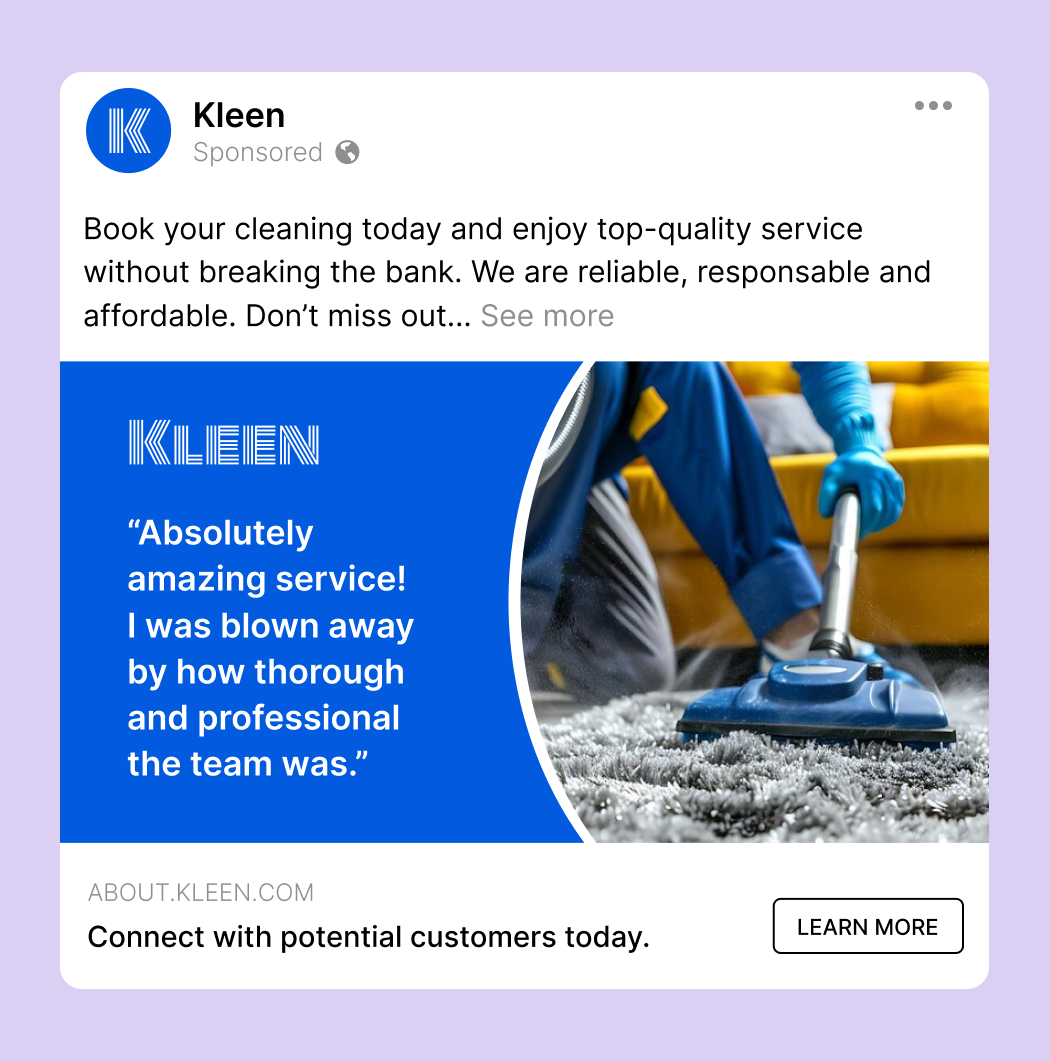
For Google Ads, there is an automated extension called seller ratings that can increase your advertisement’s CTR by 10%.
They show your average review score and how many reviews your company has right in the advertisement. But they’re automated, so the best way to improve the odds of leads seeing them is to get positive customer reviews from trusted sources like Google Business Profile.

The second example of reputation marketing here is a Local Services Ad, which also shows a review rating and the number of reviews your business has.
Google Local Services Ads work on a pay-per-lead model, so there is no way to outbid competitors for clicks. This means that reviews and your average star rating are the two most impactful criteria for ad placements.
Both of these reputation marketing examples underscore how important building your reputation with more customer reviews is.
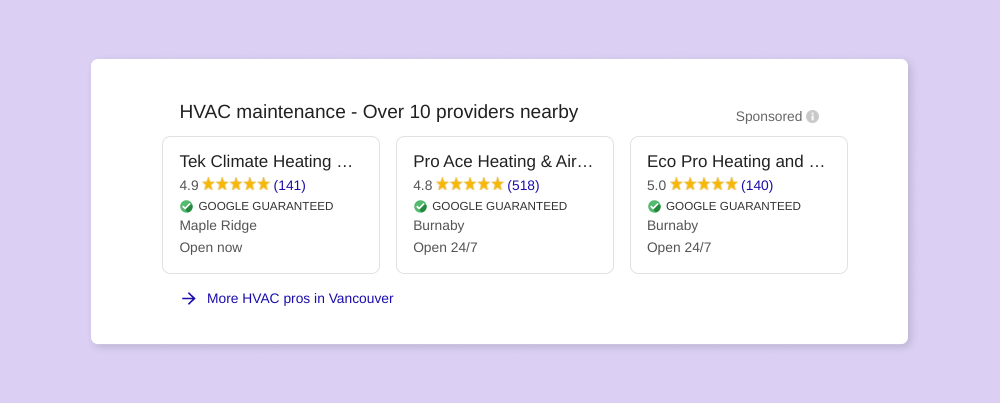
3. Promote Your Reviews on Social Media
A powerful way to do reputation marketing is to share customer reviews and positive reputation content right in your social media posts.
Let’s take a look at a few examples of what reputation marketing on social media looks like.
Who says you have to buy ads to share reviews on Facebook or Instagram? Posting customer reviews on social media is an easy way to generate sales, improve your reputation and promote your services. Especially for local home-service companies and small businesses, taking advantage of social media as a platform for reputation marketing is essential to improve market penetration.

An even easier way to share reviews on social media is with NiceJob’s reputation marketing software. The example shown here was created with the Stories tool that automatically adds customer reviews with photos to your social media and instantly triples post engagement.
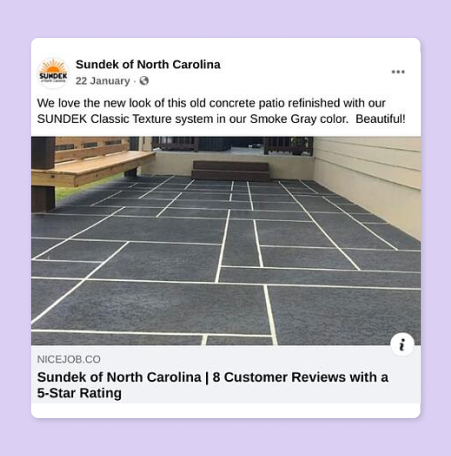
Other awesome examples of using reputation marketing on social media include sharing success stories like awards for community impact or customer service.
This kind of marketing material is just as useful as customer reviews because it demonstrates your company’s reliability and trustworthiness without having to ask audiences to take your word for it. After all, reputation marketing is all about “show, don’t tell”—and it can do wonders for your business.
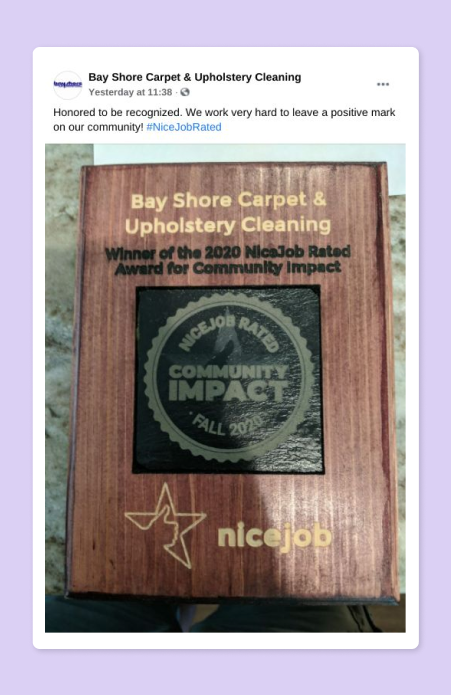
4. Claim and Set Up Listings on Review Sites
Reputation marketing doesn’t just happen on your website, in advertisements or on social media.
Besides Google Business Profile and Facebook Pages, there are lots of dedicated review sites where potential customers search for and vet companies. For example, check out our list of the best contractor review sites.
This image example is from Trustpilot, where general contractors in New York are listed with their “TrustScore,” a rating of the quantity and quality of each company’s customer reviews.
To improve your reputation marketing, be sure to have a presence on as many of these third-party review sites that are relevant in your industry as possible.
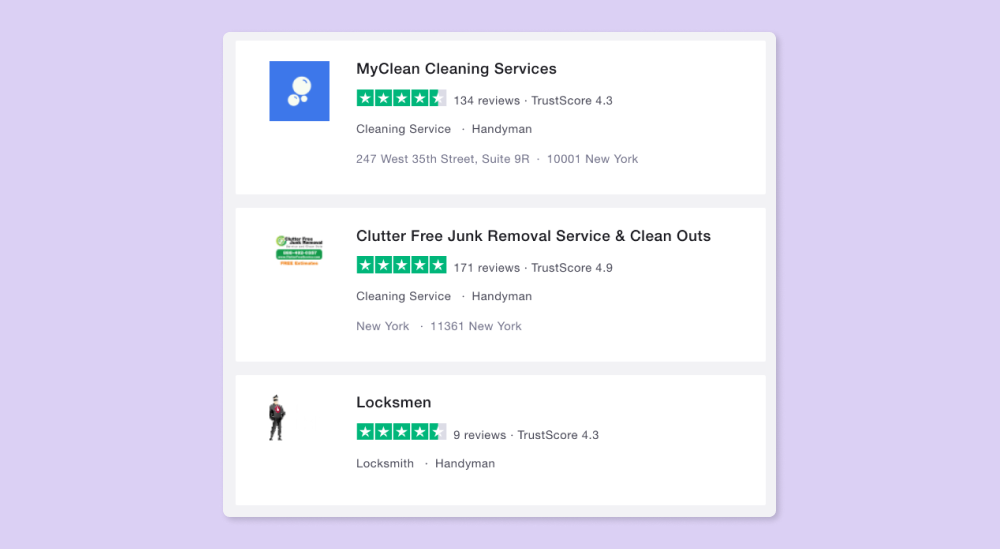
Use Reputation Marketing to Dominate Your Region
In summary, reputation marketing is an important strategy for any business if you want to take your company to the next level and dominate the local market.
Let’s review what is reputation marketing and what its benefits are.
Recap: The True Definition of Reputation Marketing
Reputation marketing is the collection and promotion of positive user-generated content. Examples of content for reputation marketing include customer reviews, testimonials, online ratings, community awards and social media mentions.
Reputation marketing differs from brand marketing because it relies on third-party and user-generated content. In other words, brand marketing involves promoting your business with marketing material that your company creates, but reputation marketing uses materials from customers and other organizations.
Reputation marketing also differs from reputation management because you’re proactively promoting positive reviews and mentions of your company instead of reactively managing and mitigating negative feedback.
Benefits of reputation marketing
Benefits of reputation marketing include:
- Improved brand awareness
- Decreased customer-acquisition costs
- Increased revenues
These benefits can be achieved by sharing reviews on your website, using positive customer feedback in advertisements, promoting your reputation on social media and by leveraging third-party review websites.
So the question that remains is...
Is Reputation Marketing Software Right for You?
Try NiceJob for free for 14 days! No risk, no contracts, and no long-term commitment.
Start Free


